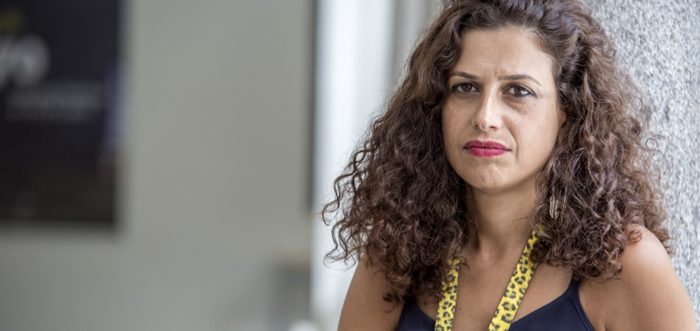There’s a strong sensory element to Rana Eid’s debut feature, Panoptic, which plunges into Lebanon’s collective memory of war, underground secrets and conflict. Eid has been known for her work as a sound artist and editor since 2003, with her experience in the field bleeding into the film. Panoptic is a visual work, but Eid’s ability to play these images against experimental soundscapes results in a harrowing, affecting and captivating debut.
We spoke to Rana Eid at Locarno Film Festival after the premiere of the film, discussing the emotional experience of navigating a painful history, mapping complex layers of sound to a pointedly visual work, and the collective process of reflection filmmakers in Lebanon are undertaking.
I saw your film alongside Dane Komljen’s short Phantasiesätze last night. I think they paired really well together.
Yeah, they are very interesting together. It’s a good combination.
I feel like there was a common thread running between the films, where both took on elements of landscape cinema, before taking it into a different sort of realm. What kind of drew you to make a film about Lebanon with such a pointed sensory focus, playing against the history of those buildings?
It’s a very subjective vision of Beirut. It’s not one of a real person. It’s one of the memories. For me, I don’t believe in the collective memory in general, in one memory. These are collective memories with us, though, and I think it’s a necessity right now for us to solve our problems. It’s a process of talking about our memories and this is one of the things that touched me most. I have a connection with the underground [the tunnels underneath Beirut], because we lived a lot in the shanties. So, that’s what was the vision of Beirut.
There’s that startling image that sits as the backdrop for the poster of the film – is that the same building as the hotel you explore throughout the film?
The big building? It’s supposed to be a market, like a huge mall. This one is an unfinished construction, an unfinished building. It was supposed to be a mall, but it wasn’t finished because of the war. And the other building is the hotel.
Is that the one with the lower levels?
Yeah.
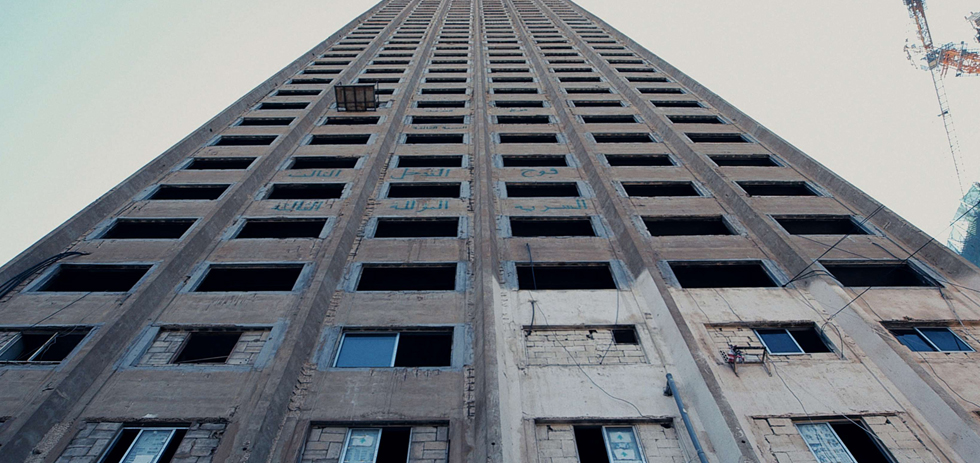
Getting access to those buildings, and then filming in them… How did you approach shooting and filming in these various locations? The way the sound played against every image in the film was one of the strongest elements of the work. As someone who has been working with sound for decades, was this a constant consideration for you throughout the filming process?
Yeah, of course, because those places are like traumatic places for us. No one went there. No one. This is the first time somebody shot there. For me to be able to shoot and to film and to have any aim to be a director, I needed to hear these sounds first. When I went to the places, I was recording just to have an architectural way of understanding the space. After that, I could talk to my cinematographer and begin to film the place. Of course, sound was the trigger of every place in the film. Every place. Even when I started to edit, I started to edit in some sounds to have a structure in my mind.
Was a lot of the film arranged in the editing? Did you have preconceived idea of how you wanted it to fit together, or did it begin to take form through the relationship each of these aspects developed with one another?
To be honest, it went through a lot of phases. It took three years to film because of the permits and editing. I went to a rough cut with the structure and completed the film from this. There were supposed to be interviews and then I found out that wasn’t working, and stuck with the initial idea: my trip into Beirut. The editor did the rough cut, another advanced rough cut, and then I did the sound, and we changed sections according to the sounds.
It’s interesting hearing you talk about the process behind all of that, I think it contextualises the work really well. I feel like having interviews interspersed in a film like this would cheapen it in a way; that the subjective and sensory elements are all the more consuming when the background doesn’t need to be stated in that overt sort of way, when an emotional landscape can offer up a much more engrossing substitute.
Exactly, because the interviews… it’s like patronising, you know? I’m telling the truth through all those people. It wasn’t the purpose of this film. For another film, maybe. But for this film, it wasn’t the purpose.
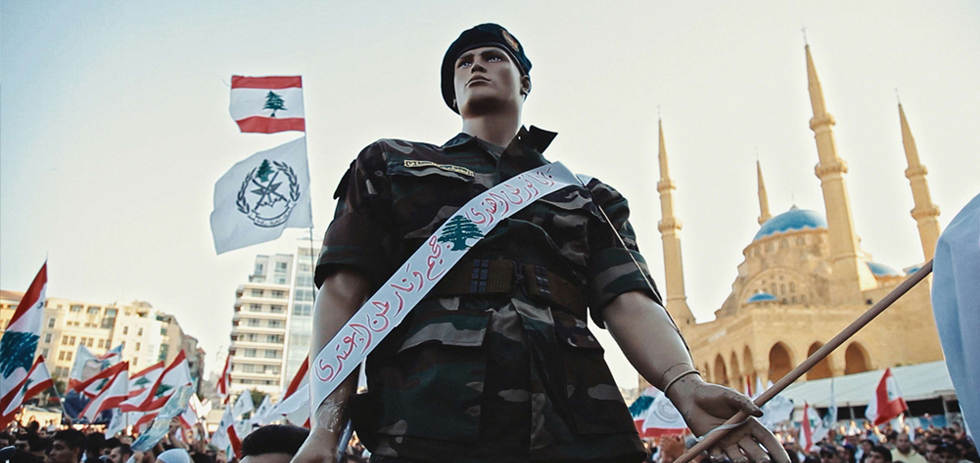
It’s a historical film in one sense, but it’s also a largely personal work at the same time. Have the audiences responded in the way you expected them to – to a work where the inspirations are as subjective and tied to your own experiences?
Yeah, I was happy by the how they responded, because I was always afraid. It’s a very local film. I wasn’t sure if foreigners who don’t know anything about Lebanon were going to feel or understand bits. I think because it’s my trip and it’s my personal story some people – not all – but it in general, they related this personal story. From this personal story, they related to the country. I was pleased about that. I think it was more or less positive. I don’t know what everybody thought, but I think it went well.
I think the way the film operates is really revealing in certain ways. I’ve read a lot on the histories in this region, and I think a big strength of Panoptic is how it explores and expresses an engagement with this conflict in a completely different way. The scenes underground feel like they sit at the centre of the film, and I don’t think there are many works that interact with these spaces in such a vivid way. I haven’t seen these images before, and it was an overwhelming experience to engage with them for the first time against these immense, layered soundscapes you pair them with.
I think it’s the first time that somebody went to the underground level. That’s the first time. We couldn’t have the permit. I waited and I had a lot of patience. I told the Detention Centre I waited for a year and a half to have the permit. So I think it’s another vision of Beirut. I think there’s a lot of directors producing a piece of their memories now. It’s a necessity, because we have to build and explore the puzzle to find the solution, maybe. I don’t know if we’re going to find the solution, but we’ll try it.
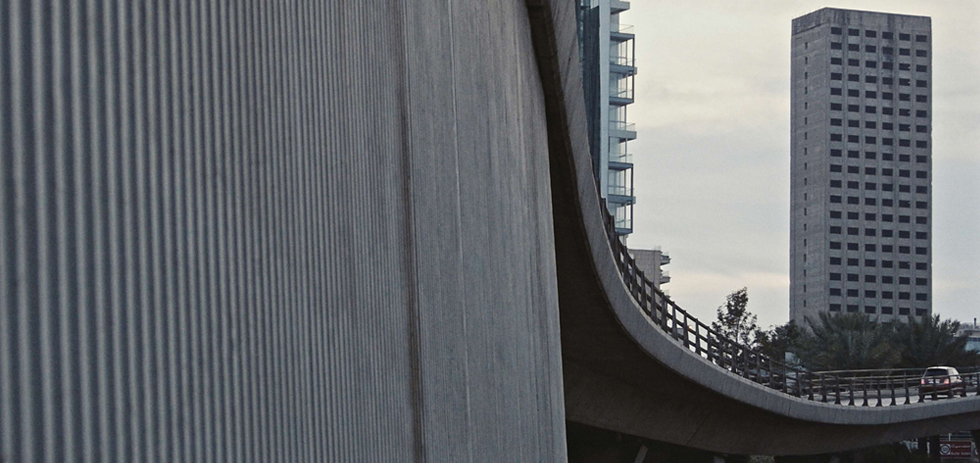
Did you find it difficult to balance that mixture of memories and subjective ideas about the conflict against the filmmaking process? I guess I’m talking in terms of the emotional effect of having to both be professionally working in these places while processing what I assume would be really draining and emotionally difficult memories and histories.
Yes. It was very hard, especially in the hotel boulevard. It was very hard because this hotel is the fear of everybody. It was like a horror film, this hotel. With the crew – I remember there were four of us there – we were extremely… Two weeks after the shoot, we couldn’t talk to each other. It was hard. I was crying during the shooting because there is something there… You feel the death. You feel the torture. You can feel it.
Yeah, you really can.
It was very difficult to stay professional, but that’s why I always do during my life. I’ve put the headphones on: to be safe, to hear the sounds, to be professional. But it was very hard sometimes. Very, very hard.
I think you really capture that visceral sense of pain in the history there. It’s like, there’s the product we see as the viewer of a film, but when it’s a work like Panopticon – where there’s so much trauma embedded in the images and the place – I always find myself thinking about what the audience doesn’t see: how a filmmaker like yourself, who we don’t see in the film, processes shooting such a work in these places.
Yeah. It was a very difficult experience, really. But we were talking a lot. I was talking to the crew every day. I was talking to the main DOP and to her sound people that were with me. It was easier because they understood exactly what I wanted, so at some point, when we went into those places, we were very critical. We don’t talk much on set. She knows exactly what I want because we were talking, talking, talking beforehand. Of course, some shots you have to just cut, but in those two buildings we didn’t discuss, because we talked about those places much more. A lot. We are all more or less from the same generation. Especially me and the DOP. You have the same trauma, the same fears. We have to say the same, and we feel we think like each other.
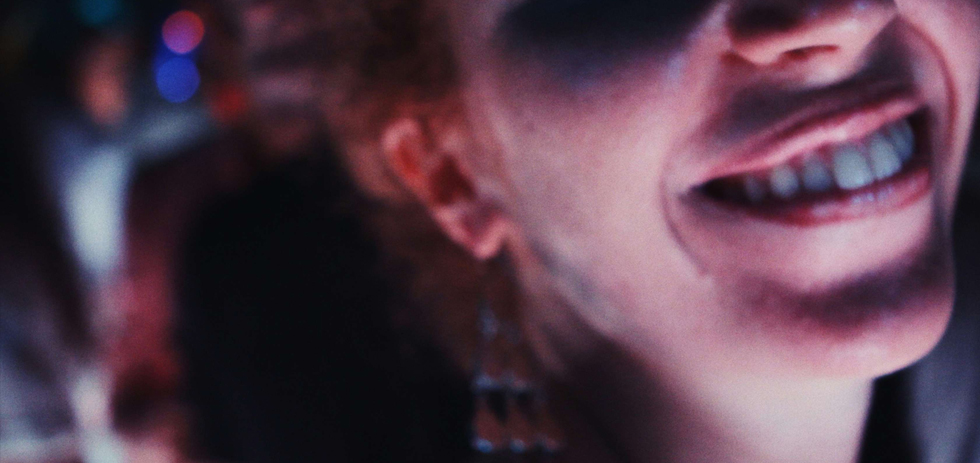
When you talk about this generation – where you and other filmmakers are trying to grapple with this past – it feels like it’s a very collective activity on one level. Where you talked about how filming this space will have a repercussion, where you might have trouble getting access to similar places in Lebanon, and screening the film there. Do you feel like making these films have these repercussions because they are addressing the past in such a direct and effective way?
Yeah. It could have repercussions, but it’s part of our daily life, because it’s our life. During the war we were going to school and we didn’t know if we were going to be coming back or not, if we were going to be killed on the road or not. It’s like my father used to say to me: “In life in general, you have 50% risk and 50% safety. In Lebanon, you have 80% risk, and 20% safety.” It’s a game. You have to play it at the end of the day. But, it’s a struggle. We know about that. We know that maybe one film in Europe would deal with repercussions, or prompt immediate repercussions from an audience. Not us. Maybe we have to do ten films to make a difference. We have to work more and we have to be more patient. Maybe today they will censor the film. Maybe after one year it will be okay. We have to be patient and we have to tell the world our story too. Because like you say, when you go to Wikipedia to read about the war in Lebanon, no one is going to tell you this. This is our daily life. It’s not about the big political picture or geographical side of it.
